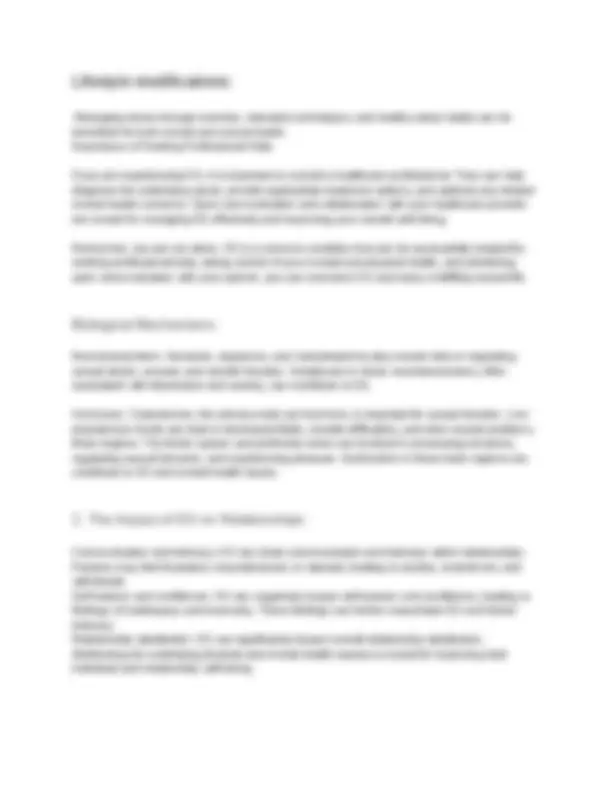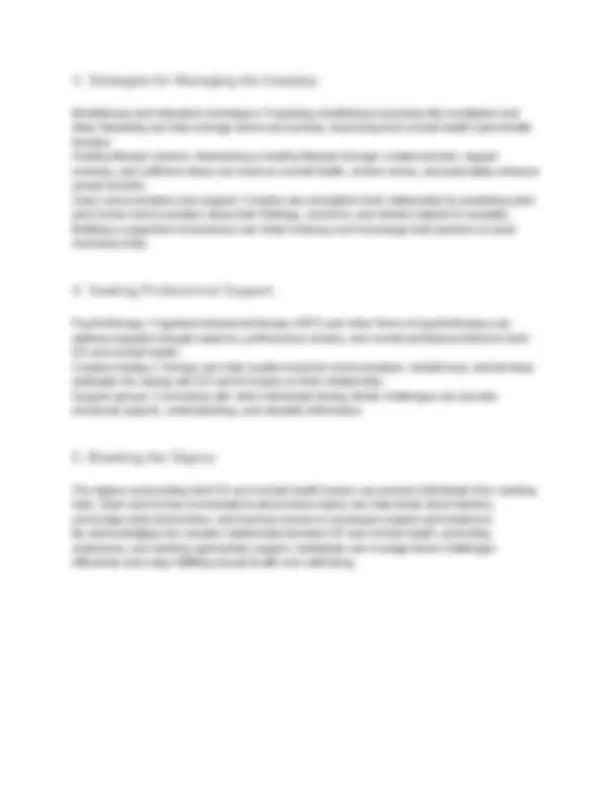




Study with the several resources on Docsity

Earn points by helping other students or get them with a premium plan


Prepare for your exams
Study with the several resources on Docsity

Earn points to download
Earn points by helping other students or get them with a premium plan
Community
Ask the community for help and clear up your study doubts
Discover the best universities in your country according to Docsity users
Free resources
Download our free guides on studying techniques, anxiety management strategies, and thesis advice from Docsity tutors
Erectile dysfunction (ED), is the persistent inability to achieve or maintain an erection firm enough for satisfactory sexual intercourse.
Typology: Study notes
1 / 4

This page cannot be seen from the preview
Don't miss anything!



Erectile dysfunction (ED), the persistent inability to achieve or maintain an erection firm enough for satisfactory sexual intercourse, affects millions of men worldwide. While often associated with physical causes, ED can also be intricately linked to mental health, creating a complex bidirectional relationship. If you are looking for a genuine ED solution then must try cheap Levitra online
Depression, anxiety, and stress can significantly impact sexual desire, arousal, and the ability to achieve an erection. These conditions can lead to performance anxiety, making it difficult to relax and enjoy sexual activity.
ED can exacerbate mental health conditions: The frustration and distress associated with ED can lead to feelings of inadequacy, shame, and low self-esteem. This can further exacerbate existing mental health conditions, creating a vicious cycle. Medications used to treat mental health conditions can cause ED: Certain antidepressants, antipsychotics, and mood stabilizers can have ED as a side effect. If you want some genuine ED solution then try generic Viagra online
Depressed individuals often experience decreased libido, difficulty concentrating, and low energy, all of which can negatively impact sexual function. Anxiety: Anxiety can lead to performance anxiety, fear of failure, and difficulty relaxing, making it challenging to achieve an erection. Post-traumatic stress disorder (PTSD): Sexual trauma can cause flashbacks, nightmares, and hypervigilance, making it difficult to engage in intimacy and achieve an erection. Substance abuse: Alcohol and drug abuse can impair nerve function and hormone production, leading to ED. Additionally, the psychological effects of addiction can negatively impact sexual desire and performance. The Role of Communication: Open and honest communication between partners is crucial for managing the relationship between ED and mental health. By discussing concerns, fears, and feelings around sexual intimacy, couples can build understanding, support, and trust.
Addressing underlying mental health conditions: Treating depression,anxiety, or other mental health conditions with psychotherapy, medication, or a combination of both can significantly improve sexual function. ED-specific therapy: Cognitive-behavioral therapy can help address performance anxiety and negative thought patterns related to sex. Couples therapy: Therapy can help couples improve communication, address relational issues, and explore ways to maintain intimacy regardless of ED. Medication: PDE5 inhibitors like Viagra and Cialis can help improve blood flow to the penis and enhance erectile function.
Mindfulness and relaxation techniques: Practicing mindfulness exercises like meditation and deep breathing can help manage stress and anxiety, improving both mental health and erectile function. Healthy lifestyle choices: Maintaining a healthy lifestyle through a balanced diet, regular exercise, and sufficient sleep can improve overall health, reduce stress, and potentially enhance sexual function. Open communication and support: Couples can strengthen their relationship by practicing open and honest communication about their feelings, concerns, and desires related to sexuality. Building a supportive environment can foster intimacy and encourage both partners to seek necessary help.
Psychotherapy: Cognitive-behavioral therapy (CBT) and other forms of psychotherapy can address negative thought patterns, performance anxiety, and emotional distress linked to both ED and mental health. Couples therapy: Therapy can help couples improve communication, rebuild trust, and develop strategies for coping with ED and its impact on their relationship. Support groups: Connecting with other individuals facing similar challenges can provide emotional support, understanding, and valuable information.
The stigma surrounding both ED and mental health issues can prevent individuals from seeking help. Open and honest conversations about these topics can help break down barriers, encourage early intervention, and improve access to necessary support and treatment. By acknowledging the complex relationship between ED and mental health, promoting awareness, and seeking appropriate support, individuals can manage these challenges effectively and enjoy fulfilling sexual health and well-being.